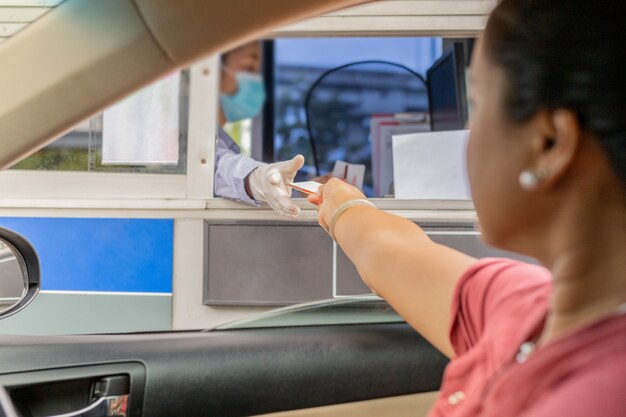Planning Your Getaway After Cataract Surgery: What You Need to Know
Cataract surgery is an eye operation that can significantly improve your quality of life, bringing clarity and color back to vision that may have been clouded for years. But once you've undergone this life-changing procedure, a burning question often arises: How soon can you travel after cataract surgery? Understanding the timelines and considerations involved is crucial for a smooth recovery and enjoyable travel experience.
Understanding the Immediate Post-Surgery Period
After a cataract operation, your body needs time to recover, and your vision can take days to weeks to fully stabilize. During the first 24-48 hours post-surgery, prioritizing rest and following your healthcare provider's instructions is essential to avoid complications.
What to Expect Right After Surgery
- Blurred Vision: It's common to experience blurred vision immediately after the surgery, which usually clears up as your eyes heal.
- Discomfort and Sensitivity: You might feel some discomfort, itching, or sensitivity to light. These symptoms typically subside within a few days.
- Follow-up Appointments: Your doctor will likely schedule post-operative visits to monitor healing and ensure no issues arise.
Air Travel Versus Road Trips: Weighing Your Options
Whether you're eyeing a tropical vacation or a short getaway, knowing the right time to fly or embark on a road trip can impact your recovery. Generally speaking, waiting at least a few days before traveling is advisable, but let's delve deeper.
Air Travel Considerations
- Cabin Pressure and Eye Pressure: Air travel can pose risks due to cabin pressure changes, which can indirectly affect your intraocular pressure (IOP). Doctors often advise against flying for a minimum of one to two weeks post-surgery.
- Convenience and Comfort: Consider comfort, including how well you can navigate the airport and manage potential discomfort during the flight. Pre-boarding arrangements or seating changes may improve your experience.
Road Trips: A Flexible Choice
- Flexibility and Control: Traveling by car allows more flexibility, with the option to take breaks as needed. It's generally safer to embark on a road trip within a few days after surgery, but ensure your vision is sufficiently sharp for driving, or arrange for someone else to drive.
- Avoid Strenuous Activities: Regardless of traveling mode, avoid heavy lifting and rigorous activities that might strain your recovering eyes.
Eye Care on the Move: Tips for Traveling Safely
Once you've planned your trip, keeping safety and eye care at the forefront remains crucial. Here are actionable tips to ensure a comfortable journey:
Protecting Your Vision
- Sunglasses: Always wear sunglasses with UV protection when outdoors to protect your sensitive eyes from bright light.
- Travel Accessories: Consider bringing along eye drops and any prescribed medications. A travel-size bottle of artificial tears can help alleviate dryness.
- Avoid Dusty Environments: If possible, steer clear of environments with excessive dust or wind that can irritate your eyes.
General Health and Comfort
- Hydration and Rest: Staying hydrated and well-rested is vital for healing. Carry a water bottle and take advantage of rest stops or layovers.
- Adjust Plans if Necessary: Listen to your body. If you experience discomfort or visual disturbances, be flexible with your plans, ensuring access to necessary medical support if needed.
Consulting with Your Healthcare Provider
While self-research is valuable, direct guidance from your healthcare provider is indispensable. They can evaluate your specific circumstances and offer tailored advice, taking into account:
- Personal Health Factors: Your unique health history and recovery rate can dictate travel readiness.
- Complexity of Surgery: Simple cataract procedures might allow for earlier travel compared to more complex surgeries.
Practical Application Beyond Travel
The recovery after cataract surgery doesn't solely influence travel decisions. It informs lifestyle adjustments and gradual returns to daily activities.
Work and Routine
- Return to Work: The timeline for resuming work varies. Desk jobs might see a quicker return compared to physically demanding roles.
- Normal Activities: Slowly integrate activities like reading or mild exercise, monitoring for any increase in discomfort or strain.
Anticipating and Handling Post-Surgery Complications
Despite a high success rate, being aware of potential complications helps you act promptly if issues arise.
Recognizing Warning Signs
- Persistent Pain or Redness: While mild discomfort is expected, any severe or prolonged pain should prompt a visit to your doctor.
- Vision Changes: Sudden vision changes or flashes of light warrant immediate medical attention.
Ensuring a Successful Recovery
- Follow Directions: Adhere strictly to prescribed medication and eye drop schedules.
- Safe Sleep Practices: Avoid sleeping on the side of the operated eye to prevent pressure or irritation.
In summary, traveling after cataract surgery requires careful consideration and planning to ensure your safety and comfort. Following appropriate timelines, being equipped with practical advice, and maintaining open communication with your healthcare provider will pave the way for a smooth and enjoyable post-surgery journey.
Quick Summary: Post-Cataract Surgery Travel Tips
- 🛫 Air Travel Wait Time: Wait 1-2 weeks post-surgery to fly.
- 🚗 Road Trip Ready: Likely okay a few days after, but ensure vision clarity.
- 👓 Sunglasses Essential: Always wear protective eyewear outdoors.
- 💧 Stay Hydrated: Vital for healing, carry water for journeys.
- 👩⚕️ Consult Professionals: Tailored advice from your doctor is key.
- ⚠️ Monitor Eyes: Look for warning signs like persistent pain or vision changes.
Implement these tips to safeguard your health and maximize the enjoyment of your travels after cataract surgery. Safe travels and happy healing!

Related Articles
- Are Cataracts Curable
- Are Cataracts Genetic
- Are Cataracts Hereditary
- Are Cataracts Nuclear Sclerosis
- Are Cataracts Painful
- Are Ivizia Eye Drops Okay After Cataract Surgery
- Are You Awake During Cataract Surgery
- Are You Awake For Cataract Surgery
- Are You Put To Sleep For Cataract Surgery
- Are You Sedated For Cataract Surgery
